Has para-archery star David Drahoninsky finally got serious? We caught up with him in Berlin.
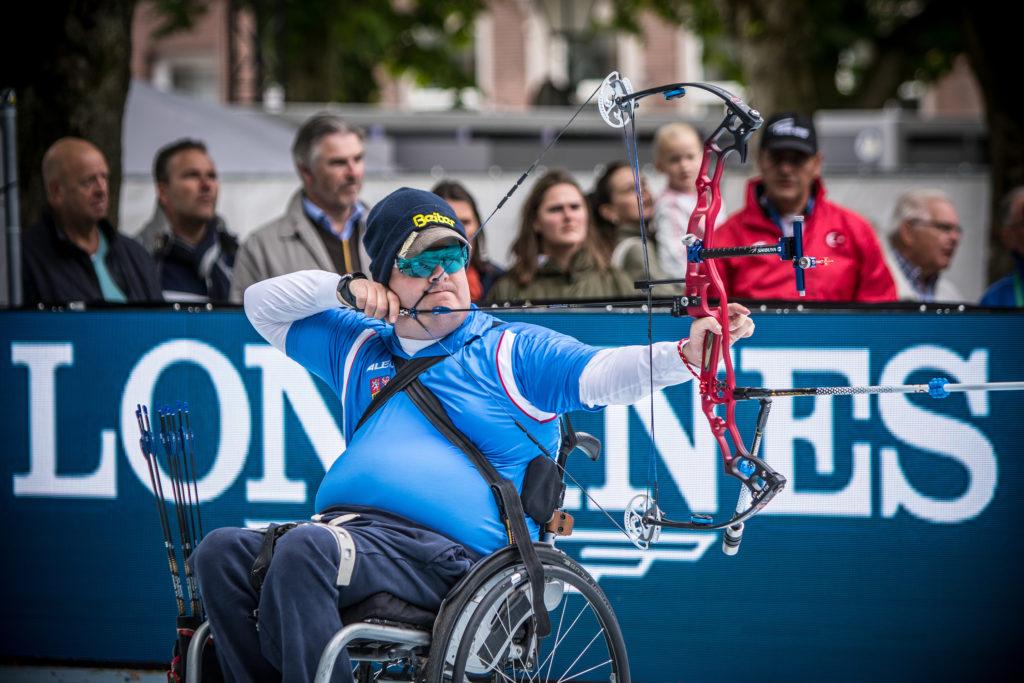
David Drahoninsky, of the Czech Republic, is one of the biggest characters in international archery, and one of the most successful para-archers of the last decade.
Indeed, his biggest win of all was one of his first major titles; Paralympic gold at Beijing 2008. Four years later, in London, he followed that up with a silver medal at Chelsea Barracks, beaten by the USA’s Jeff Fabry.
At the third attempt, and after two previous podium finishes, he finally became World Champion in 2015 in Donaueschingen, where he also set the para-record for a 15 arrow match. He perhaps became even better known then for handing out beer to fellow competitors, including GBR’s John Walker, who he beat in the final that year.
12 months later in Rio, sporting bright blue hair, he was giving the world some of the greatest quotes of the Paralympics, including: “I would like to see the statue of Jesus and ask Him to let me hold His thumb and oversee all athletes from the mountain. People will cheer, and we will show them how to shoot a bow when He will arrive at the Sambodromo.”
He won a silver medal in Rio, where Walker got his revenge, but then managed to top that by proposing to his girlfriend onstage at the Sambodromo, which ended up being one of the best syndicated stories of the Paralympics. (She accepted.) He pulled off mixed team bronze in Brazil, too.
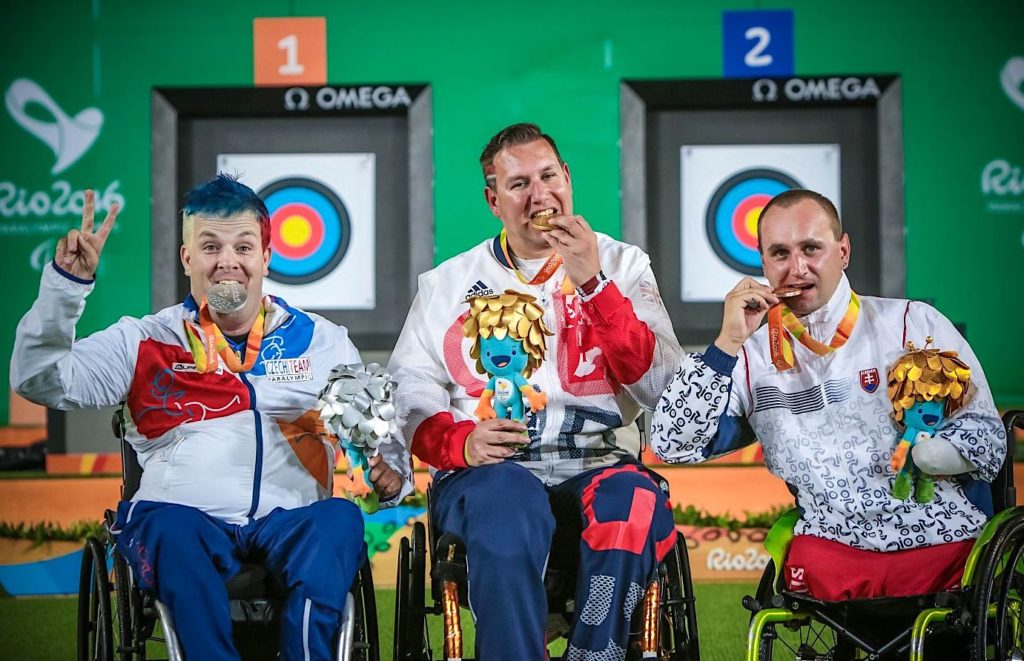
In 2018, Drahoninsky and Sarka Musilova won the W1 mixed team title for the Czech Republic at the European Para Archery Championships on home turf in Pilsen.
Last year he took a bronze medal at the World Para Championships in Den Bosch, and a place finish in the mixed team won the Czech Republic a couple of spots in Tokyo – one of which he is very likely to be filling.
Drahoninsky competes in the W1 category, where athletes have impairment in both the top and bottom of their bodies, compete while seated in a wheelchair and may shoot with either a recurve or compound bow.
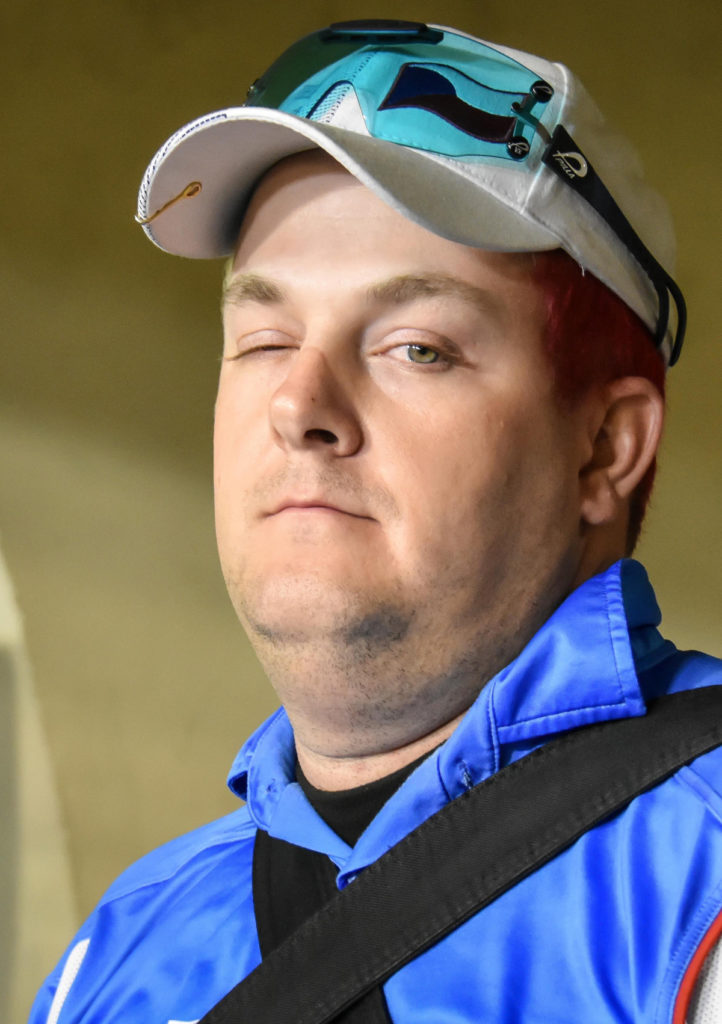
Archers shooting recurve bows are allowed mechanical release aids, while compounds may not use peep sights, magnifying scopes or levelling bubbles. All bows, recurve and compound, are limited to 45lbs in peak draw weight.
A full-time para athlete, David also runs the DD Para Archery Project in Prague, which helps other para and able-bodied archers to improve; he has notably mentored other Czech para-archers, like Karel Davidek.
Speaking to him again in Berlin, it’s clear that another Paralympic gold is weighing on his mind – after all, there has been a twelve year gap since the last one. It seems like perhaps a slightly more serious Drahoninsky is competing these days, although the twinkle has not left his eye.
What brings you to the Berlin Open?
“I live near Berlin, it’s only three or four hours by car. My brother, who lives in New Zealand, is attending this shoot. I’m very happy that I can be here with him. The shooting has been good. The first and second halves [of qualification] were the same; 285 each. I’ve made a few changes recently.
“That’s why I came to Berlin, to see if what I have changed is good and working. I see now it is good. I can shoot eliminations here with Nathan McQueen and Marcel Pavlik, which will test me. In the last couple of months, I’ve been practicing only with my W1 compound. [Ed’s note: W1 compounds lack peep sights, magnifying scopes, and levelling bubbles.]
“I thought that here in Berlin we would be in W1 category, but we are all in open. I bought both bows just in case. I’m happy with the results here so far, it’s been very good. I shot a 570, so I left 30 points in reserve. But for me, this is only training, really. Grade A training, because I’ve been spending it with my brother. I will have to teach him how to write ten, ten, ten” [laughs].
In 2019 you medalled in every tournament you entered. What were the highlights?
“I took bronze in the European Cup in Germany. It was my first final there, which was very nice. A fantastic atmosphere, as good as the Paralympics. We came first in mixed team too. The Italian mixed team is very good, but we were better. So it’s been a good year, 2019. But of course, the goal is Tokyo.”
The Paralympics aren’t that far away now. What have you been doing to prepare?
“The preparation really started in October. Some really hard training. I changed some things, and I think it will be really good. I’ve been trying some heavier weights on the stabilisers, and some different angles. I finally learned last year how to really tune a bow.
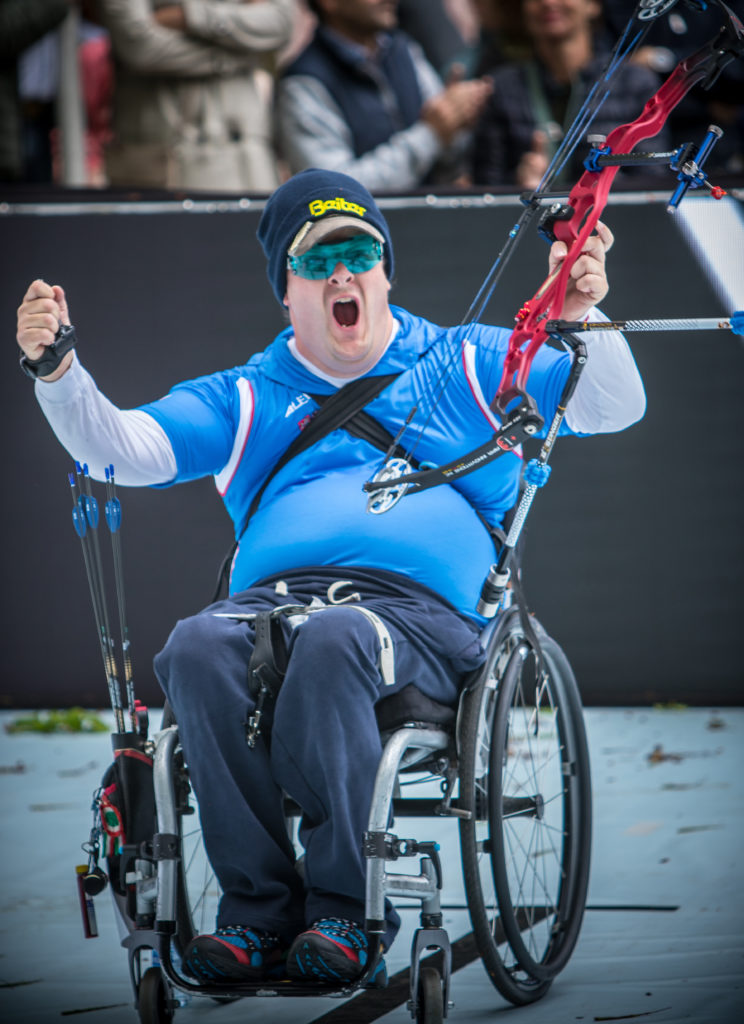
“Now I don’t need to blame other people for the mistakes. It’s really important, because now when I need something I don’t need to go to the shop or a coach. I can do it myself.
“Coming up, I have a tournament in the Czech Republic to prepare for next season. I will not go to Dubai [the annual Fazza tournament] but I will go to Olbia for the European Cup. But the goal is always Tokyo.”
“I have time to try new things. In July I can really do my last preparation hard. I would like to just do some really good archery in Japan, and hopefully it will be enough for a medal. Mixed team is also a goal this time around.”
“I think it will be a nice year.”
You grabbed a spot for the Paralympics last year. What have you done to work on the mixed team results?
“We got the place in the Netherlands, by finishing fourth in the mixed team [with Sarka Musilova]. Although it is only a place for the Czech Republic. In September we did a camp with Kevin Evans from Canada [one of Canada’s top Paralympians].
“He was a nice guy, and he had a lot of experience. We will be meeting again this year. These guys helped me a lot with sponsors. But if I get the results, it will be because of working hard for a long time.”
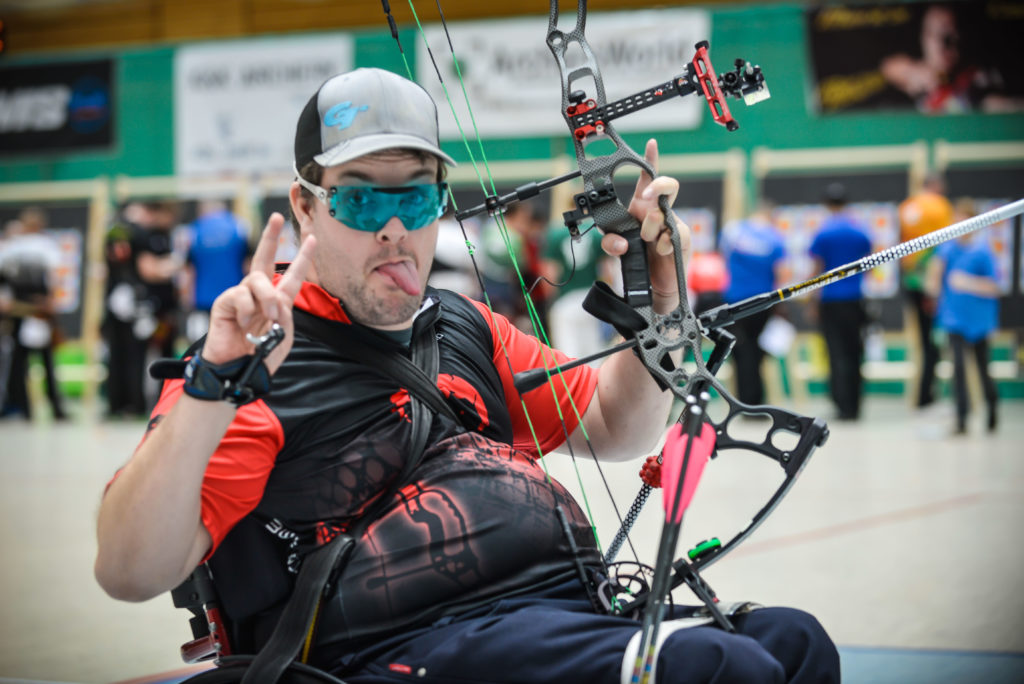
In the last five years there have been some new guys coming into W1, and China has invested an enormous amount of money into para-archery. Are you worried about the future?
“China won mixed team in the Netherlands, yes. The people are waiting for me to have good results. It is never easy, because new people are always coming.
“But I will work very hard, and I hope it will be enough. I’ve been working on physiotherapy too, and things with my mental coach, and a new fitness program. My practice has improved compared with last year. I can work at 150% now.”
Drahoninsky chuckles as he leaves to prepare for the welcoming party. “I’ve been doing archery for twenty years, and I’ve been on the podium for the last ten. Everyone wishes they were me.”

